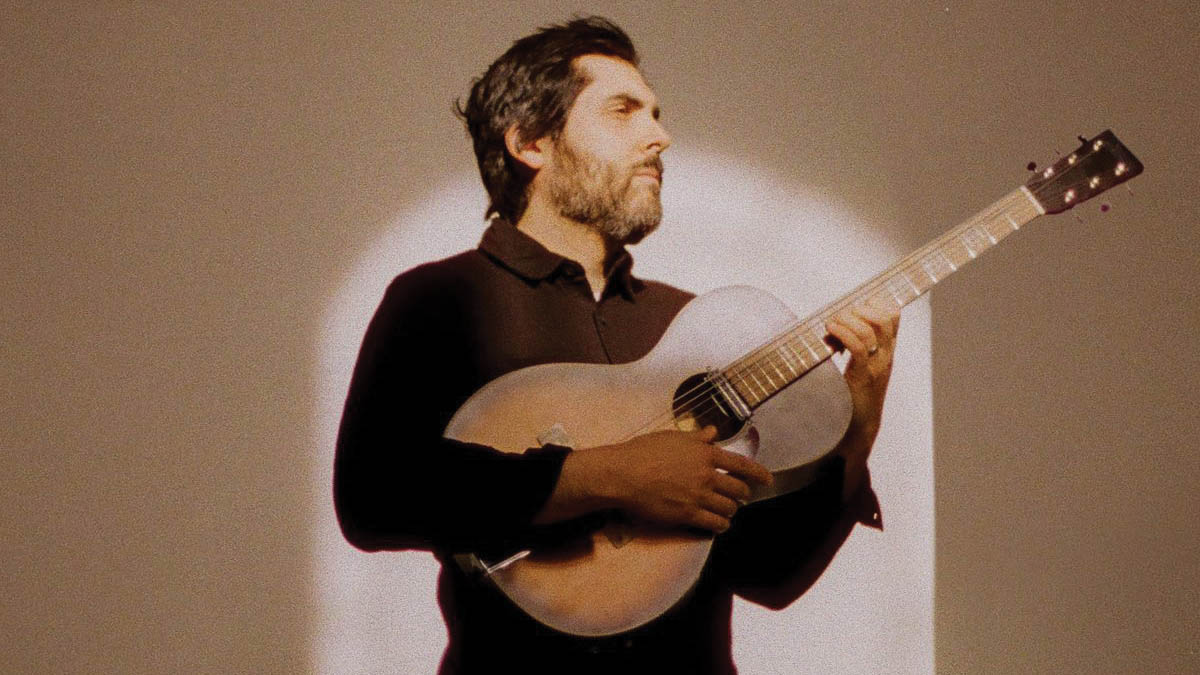“I’m trying to chase a sound I’m hearing in my head – and basically, whatever everybody else is doing, I try to run away from”: Stevie Ray Vaughan inspired him to get serious. Now Ariel Posen is blazing his own trail
Emotive, minimalist, almost gourmet, Ariel Posen’s playing is a gift for the senses, and new album Reasons Why has plenty reasons why he is one of the most original guitarists today

Ariel Posen believes in a unified field theory of music. “Playing the guitar is not what I do; it’s just a part of me,” he says. “And I think my playing – and singing and writing – represents me as a person very well. I’m an understated guy. I try not to talk too much. When I do say something, there should be meaning and value there.”
This approach has been at the heart of Posen’s sound since his solo debut in 2019, and it reaches a new plateau on his third album, Reasons Why.
Standout tracks like I Wish That We’d Never Met and Broken But I’m Fine radiate a lean and soulful elegance, with lyrics that explore the vagaries of the heart. And whether he’s conjuring cumulonimbus textures in a dreamy soundscape or just peeling off quavering slide licks, there’s never a wasted note.
Posen, the son of klezmer musician parents, started gigging around Winnipeg on his own at 14. But he says the “gateway that opened the door” to his future was hearing Stevie Ray Vaughan.
“He was so aggressive and powerful,” Posen says. “It was the first time I thought, ‘I want to do that.’ Not what Stevie Ray did, but being a more serious, sophisticated guitarist.”
That led to his “10,000 hours of practice” and much dissecting of solos from across the musical spectrum, from Charlie Parker to Jaco Pastorius to Kevin Breit (a fellow Canadian whose slide work Posen says “turned my head around”).
“Transcribing is a great way to develop your ear,” says Posen, who’s also an inspiring teacher of online masterclasses.
All the latest guitar news, interviews, lessons, reviews, deals and more, direct to your inbox!
“But instead of just saying, ‘Okay, I can play this thing I like now,’ I thought, ‘Let me break it down on the harmony level and figure out how I can use the information in different ways any time I want. That kind of thinking helped open my mind as a musician.”
Though Posen considers gear as “tools to get the music out,” his choices reflect a connoisseur’s palate – custom-built guitars from Mule, Case and Kithara, favorite pedals like the Chase Bliss Thermae and Tonal Recall Analog Delay, and Two-Rock Traditional Clean amps.
“I’m trying to chase a sound that I’m hearing in my head and do it in an authentic way,” Posen says. “And basically, whatever everybody else is doing, I try to run away from.”
- Reasons Why is out now and is self-released.
Bill DeMain is a correspondent for BBC Glasgow, a regular contributor to MOJO, Classic Rock and Mental Floss, and the author of six books, including the best-selling 'Sgt. Pepper at 50.' He is also an acclaimed musician and songwriter who's written for artists including Marshall Crenshaw, Teddy Thompson and Kim Richey. His songs have appeared in TV shows such as 'Private Practice' and 'Sons of Anarchy.' In 2013, he started Walkin' Nashville, a music history tour that's been the #1-rated activity on Trip Advisor. An avid bird-watcher, he also makes bird cards and prints.

![B.B. King [left] cups his hands to his ear as he asks the crowd for more. Joe Bonamassa, with a Les Paul, gives his crowd a thumbs up](https://cdn.mos.cms.futurecdn.net/P3XrQLh86C27JfPp4AGp6n.jpg)